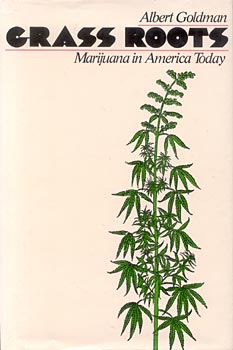
[an error occurred while processing this directive]
BACK COVER #
When you review the history of marijuana in Western civilization--a very short history of little more than a century--one thing strikes you before all else; namely, how the drug has conformed with the spirit of the age no matter what the spirit or the age. For the French Romantics, voyagers in strange seas of exotic imagery and oriental delirium, hashish was the essence of the oriental sublime. It inspired profound reveries and startling hallucinations and awesome transcendental flights cloaked in the imagery and language of that hyperbolic age. For the cats and kitties of the Jazz Age, marijuana was kicks, climbs, jollies and high times jumpin' to the beat of a hot horn or a mean licorice stick. For the hipsters of the Bop era, marijuana was a cool head, a slow take, a deep dig, the hipster's aid to thought and reflection. With the Beats the pendulum swung back toward the exotic and the ecstatic as Dean Moriarty and JAck Kerouac plunge into the jungle of Mexico with their American road skills and their faith in the infinity of the soul, a latter-day revival of the arch-Romantic spirit crossed with freshman party kicks. Eventually, the ardors of the Beats were extinguished in the spacey age of Rock, which restored dope to its position as the food of thought, the drug for heads, the stuff of stone. At every point in this history, marijuana was treated as if it were the cause of thatof which it is purely effect. So the history of dope reduces eventually to the history of culture, and at last it becomes clear that instead of man being the slave of drugs, drugs are the slaves of man. Because wherever man's head lies in a given time, drugs will simply intensify that posture of the soul, whether it be active or contemplative, cool or ecstatic, hip or hippie.
